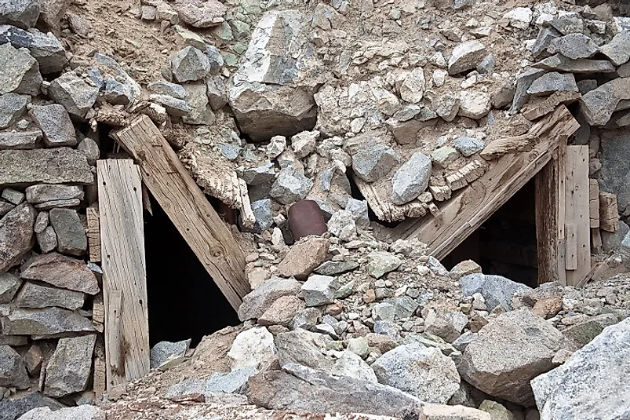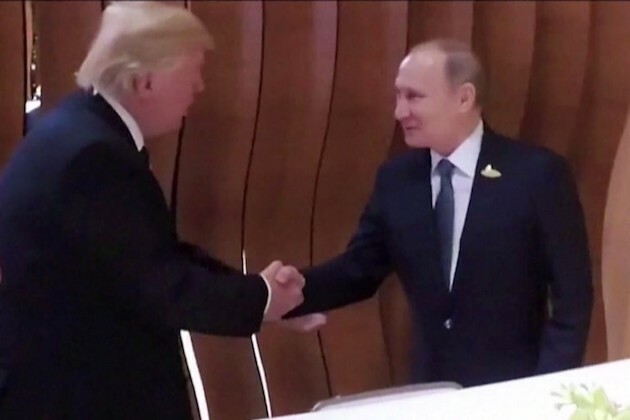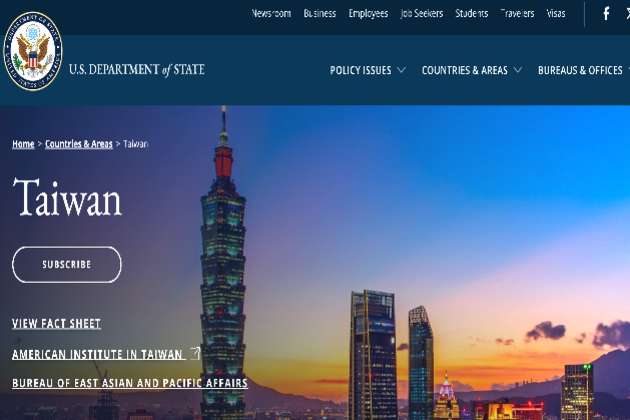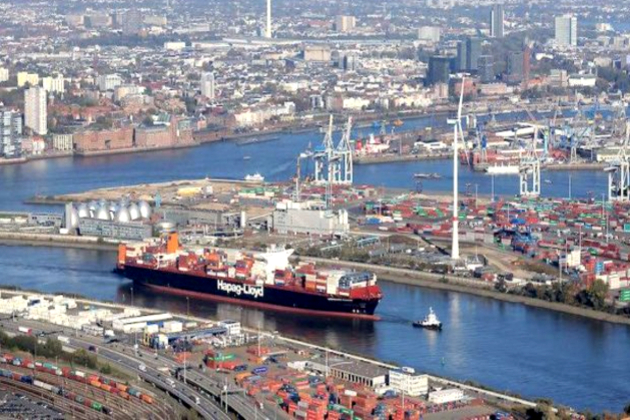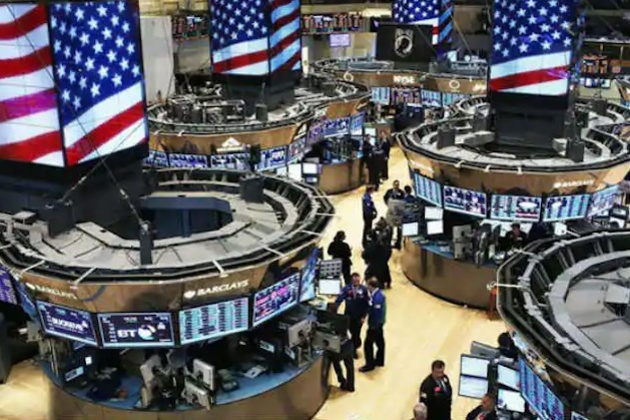US and Russia move closer but Ukraine and the EU stand in the way
RT.com
19 Feb 2025, 17:57 GMT+10
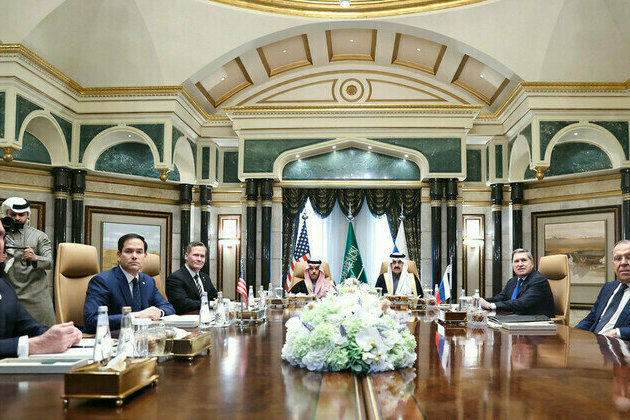
Riyadh talks show Moscow and Washington can do business
On Tuesday, Riyadh hosted the first high-level meeting between Russian and American officials in several years. The meeting was the latest in a rapid series of diplomatic maneuvers set off by Donald Trump's phone call to Vladimir Putin. It followed US Vice President J.D. Vance's lashing of Western European leaders in Munich and Treasury Secretary Scott Bessent's economic ultimatum to Ukraine.
With so much anticipation surrounding Riyadh, expectations were understandably high - perhaps too high. Some observers may be disappointed that Marco Rubio and Sergey Lavrov did not emerge from the talks to announce historic breakthroughs. Instead, both were notably cautious in their statements. When asked about a potential Trump-Putin summit, Lavrov simply responded, "Not next week." Meanwhile, Western media has already speculated that such a meeting will take place before the end of February.
Does this mean the meeting in Riyadh was a failure? Not at all. Success was never meant to be measured by immediate results. Even before the talks began, Russian presidential aide Yury Ushakov made it clear: the goal in Riyadh was to "agree on how to start negotiations." By that standard, the summit achieved its purpose.
Key takeaways from Riyadh
The most tangible outcomes of the meeting include:
- Restoration of diplomatic channels:Russia and the US agreed to begin the process of fully resuming embassy operations.
- Creation of a consultation mechanism:A structured dialogue to resolve bilateral "irritants" in the relationship.
- Initiation of Ukraine negotiation teams:Although talks on Ukraine did not advance significantly, the groundwork was laid for future discussions.
These are foundational steps. Without them, further dialogue would be impossible.
Perhaps even more significant than these tangible outcomes was the overall tone of the talks. For the first time in years, Russian and American officials sat across from each other not as ideological caricatures but as pragmatic dealmakers. The shift in atmosphere was so stark that Trump's special envoy, Steve Witkoff, reportedly said he "could not have imagined a better outcome." That sentiment alone suggests real momentum for future negotiations.
The road to peace remains long
However, despite the positive tone, the Riyadh talks did not bring an end to the Ukraine conflict any closer. This was to be expected. Moscow and Washington went into the meeting focused on improving their own relations first. The issue of Ukraine, for now, remains secondary.
Despite Trump's rapid reshaping of the diplomatic landscape, the road to peace remains difficult. For the past three years, the Western strategy was clear: negotiate an internal peace deal between Ukraine and its allies, then attempt to pressure Russia into accepting it. Trump has flipped this entirely - choosing instead to negotiate directly with Moscow while sidelining both Kiev and Brussels.
Thus, what was once a strategy of "negotiating Ukraine with everyone but Russia" has now become "negotiating Ukraine with Russia but without the EU." This shift suits both Trump and Putin. But it leaves two key players - Ukrainian leader Vladimir Zelensky and the EU leadership - furious.
Resistance from Kiev and Brussels
Zelensky has already rejected the legitimacy of any US-Russia agreements that exclude Kiev. Meanwhile, Western European officials are increasingly viewing Washington as a rival rather than an ally. This is a significant development. Even if Moscow and Washington reach an understanding, Ukraine, under EU and British influence, could refuse to comply and continue fighting.
Despite dwindling American aid, the Ukrainian Armed Forces (AFU) likely have enough resources to keep fighting for another six months. Beyond that, their ability to sustain the war depends on whether the EU and Britain can revive their military-industrial production - something that seems highly unlikely. Eventually, Western Europe will have no choice but to accept whatever settlement is reached.
The next crucial step: A Trump-Putin meeting
The assumption that peace will be brokered quickly hinges on one major factor: a personal meeting between Trump and Putin next month, where the framework for a ceasefire could be finalized. However, that remains a best-case scenario.
For now, the biggest sticking point is how to structure the ceasefire. The US wants an immediate halt to hostilities, followed by elections in Ukraine. Given Russia's military momentum, such an arrangement is unacceptable. There is no guarantee that Ukraine would not exploit the pause to regroup and continue fighting.
Looking ahead
How Moscow and Washington will navigate this issue remains to be seen. But it is clear that the first steps toward peace have been taken - however long the road ahead may be.
While optimism is warranted, patience will be necessary. The shift in US policy under Trump has changed the entire diplomatic equation, but reality is setting in: peace cannot be imposed overnight. Instead, it will be a long, step-by-step process.
The first move has been made. Now, we wait to see what follows.
This article was first published by the online newspaperGazeta.ruand was translated and edited by the RT team
(RT.com)
 Share
Share
 Tweet
Tweet
 Share
Share
 Flip
Flip
 Email
Email
Watch latest videos
Subscribe and Follow
Get a daily dose of Africa Leader news through our daily email, its complimentary and keeps you fully up to date with world and business news as well.
News RELEASES
Publish news of your business, community or sports group, personnel appointments, major event and more by submitting a news release to Africa Leader.
More InformationInternational
SectionMine collapse in western Mali kills at least 43, mostly women
BAMAKO, Mali: A tragic mine collapse in western Mali, West Africa, has claimed the lives of at least 43 people, mostly women, an industry...
US Navy confirms collision of aircraft carrier near Egypt
WASHINGTON, D.C.: The U.S. military operates 11 aircraft carriers, and any serious damage that forces one out of service could put...
Zelensky sidelined as Trump takes Putin position on war
As we approach the third anniversary of the Russian invasion of Ukraine, a monumental shift is taking place that might just lead to...
US State Department alters website wording on Taiwan independence
TAIPEI, Taiwan: The U.S. State Department has revised its official website's fact sheet on Taiwan, removing a previous statement that...
UN warns of worsening humanitarian crisis in eastern Congo
GENEVA, Switzerland: The humanitarian crisis in eastern Congo is worsening, with around 350,000 displaced people left without shelter...
Texas residents near SpaceX to vote on creating ‘Starbase’ City
McALLEN, Texas: A county in Texas has approved an election that will let people living near SpaceX decide whether to create a new city...
Business
SectionDecember sales growth in US revised up to 0.7% from 0.4 %
WASHINGTON, D.C.: Retail sales in the U.S. fell by the most in nearly two years in January, likely due to cold weather, wildfires,...
Standard and Poor's 500 closes at new all-time high
NEW YORK, New York - U.S. stocks moved modestly higher on Wednesday with the Standard and Poor's racking up a new all-time closing...
Bundesbank chief warns US tariffs could hurt Germany for years
FRANKFURT, Germany: Germany faces significant economic risks from potential U.S. trade tariffs, which could dampen growth for years...
Italy’s Termoli plant shifts from EV batteries to hybrids
MILAN, Italy: Stellantis announced this week that it will begin producing hybrid vehicle components at its Termoli plant in southern...
Amazon workers in North Carolina reject union, victory for retailer
RALEIGH, North Carolina: Amazon workers in North Carolina voted against joining a union, giving a big win for the company, which has...
U.S. stock markets finish in black despite early losses
NEW YORK, New York - U.S. stocks crept into the black in late trading Tuesday after spending most of the day in negative territory....

